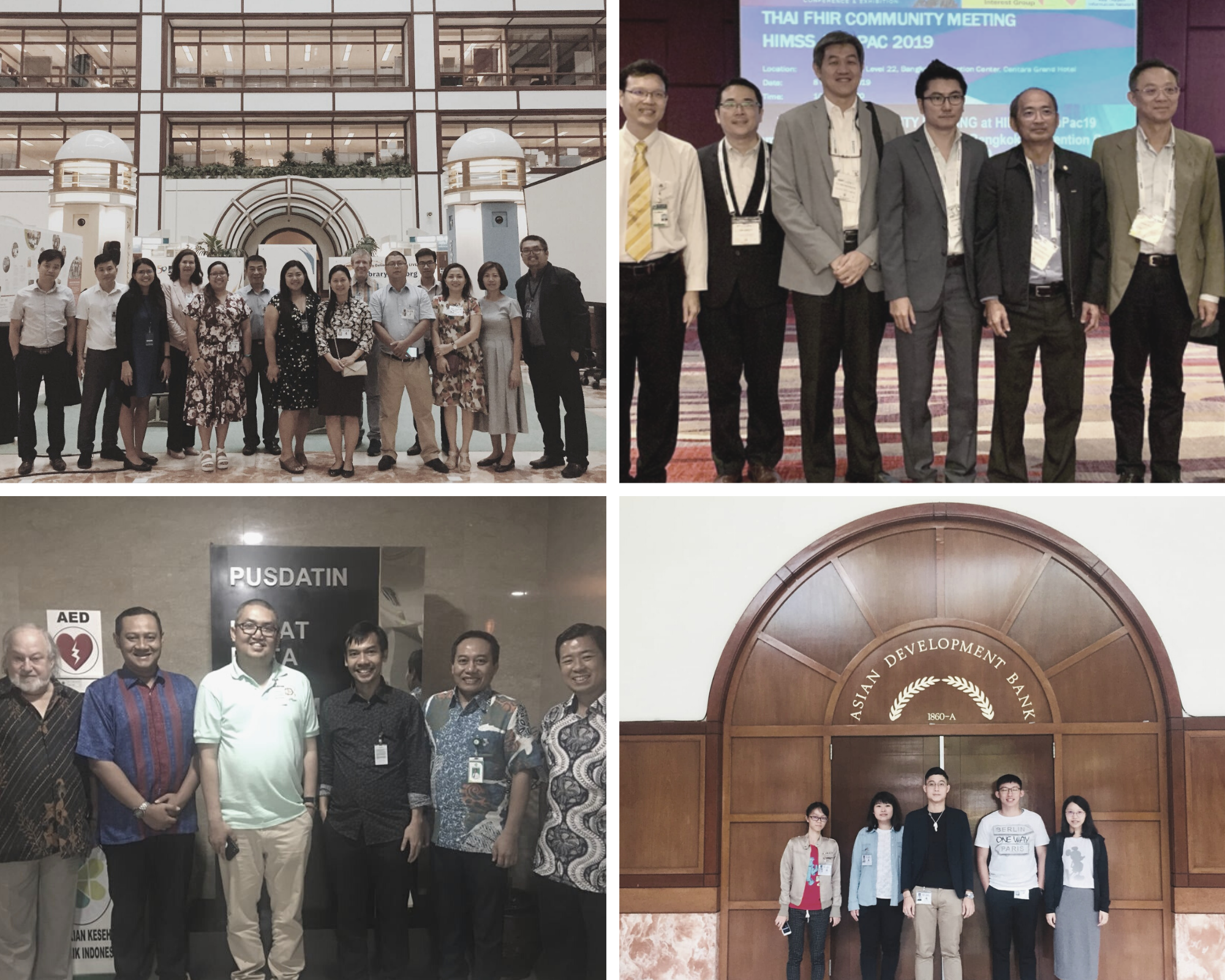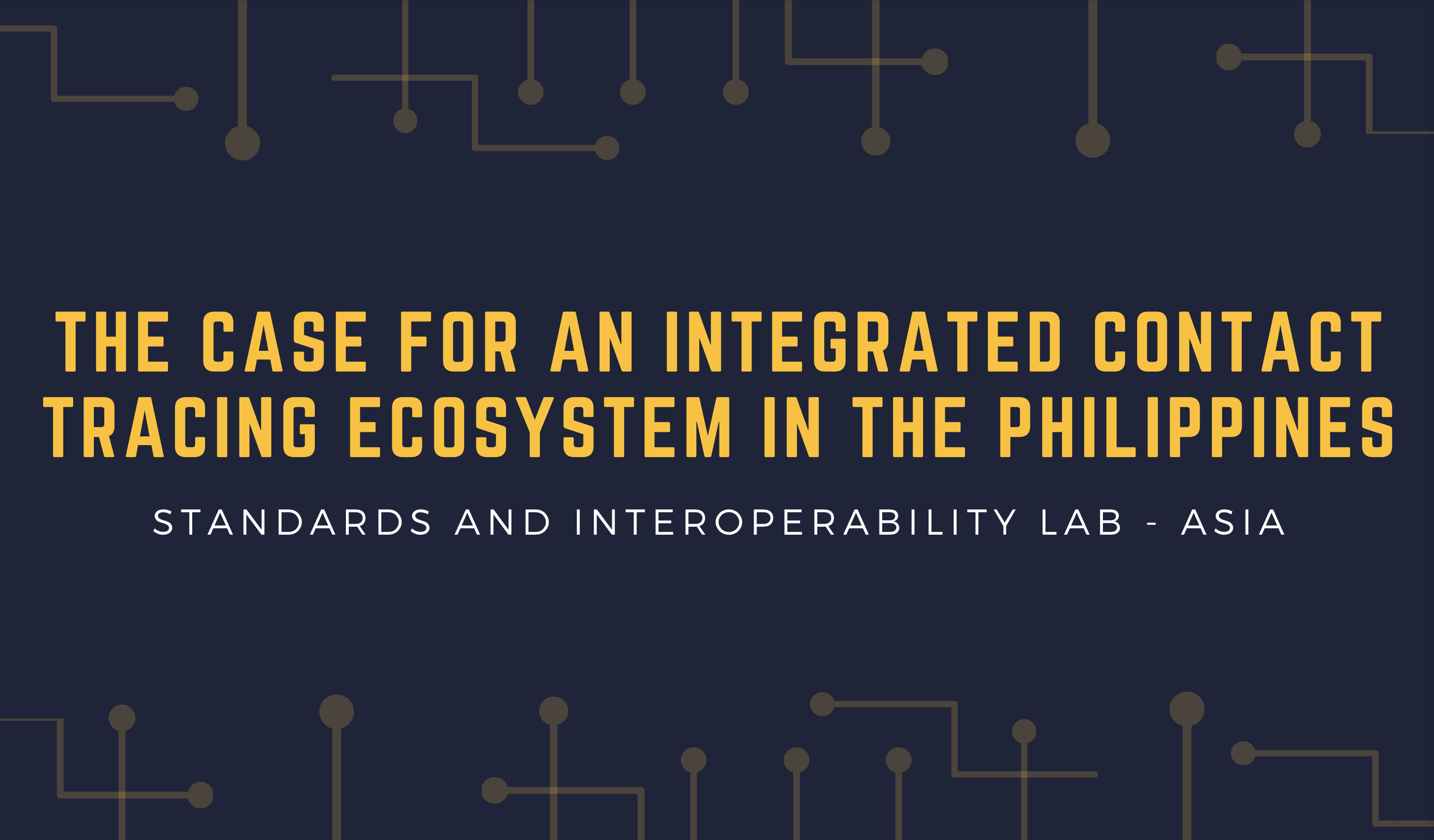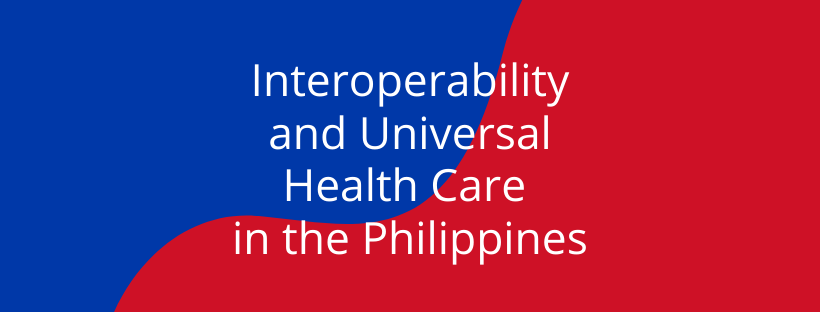A health interoperability laboratory is a facility focusing on the interoperability of digital health applications. It is a facility where the government, private sector, and academe can come together to test, create, innovate and connect digital health information systems. With the help of digital health experts, the lab ensures that health information systems are standards-based and interoperable.
The resources, processes, and technology needed to manage the lab on a daily basis would depend on the organization’s purpose for setting-up the lab. There is a need to build a use case based on the priorities of the country’s health sector. Common uses for an in-country interoperability lab may include the following:
- Benchmarking of emerging technologies for health information systems
- Training on HL7-FHIR to connect health information systems
- Testing compliance on HL7-FHIR to ensure interoperability of health information systems
Importance of Co-creating an Interoperability Lab in a Country
A health interoperability lab supports the achievement and measurement of universal health coverage (UHC) through the use of information and communications technology (ICT).
The Gap: Health Data and Information Fragmentation

The current state of fragmentation in health information systems entails that health data and information lose their potential to be transformed into useful information and knowledge for:
- Healthcare providers (for clinical decisions)
- Decision-makers (for evidence-based health
policy)
- Patients (for personal health care)
This happens when mechanisms are not in place to allow health information exchange.
The Solution: Health Information Systems Interoperability

To enable interoperability, a country needs to agree on what health standards to use.
Standards define the set of requirements (data structure, file format, protocol, procedures, processes, systems, etc) that must be met and agreed upon by all organizations within a health
ecosystem to deliver quality health service.
This helps facilitate the continuity of patient-centric care, wherein patients should be able to receive data-driven and information-based treatment from their healthcare providers at any place and at any time.
Building a Community of Interoperable Labs (COIL)

The Regional Interoperability Workshop, organized by the Asia eHealth Information Network (AeHIN) at the sidelines of the Global Health Research Forum in August 2015, gave birth to the concept of Standards and Interoperable Lab – Asia (SIL-Asia) as a regional health interoperability lab. The concept was inspired by existing interoperability labs in Canada (Mohawk College) and in South Africa (Jembi Health Systems).
The concept of the lab emerged from the need of countries in Asia to have a facility that can benchmark various emerging digital health technologies in the market against a common set of international standards and thus, enable interoperability.
As a result, the regional lab served as a template of in-country labs in Asia with a common vision of forming a Community of Interoperable Labs (COIL). COIL is a group of countries that have pledged during the 6th AeHIN General Meeting and Conference on Interoperability for UHC last 7-9 October 2018 in Colombo, Sri Lanka to co-create their own in-country interoperable labs with the guidance and support of SIL-Asia.
SIL-Asia as a Regional Interoperability Lab

With this, the Standards and Interoperability Lab – Asia (SIL-Asia) was established in early 2017 as a regional interoperability lab, initially based in the Philippine General Hospital. The lab is envisioned to be a reference for interoperability labs among the member countries of COIL. The goal of an interoperability lab is to provide technical support to the government and the private sector with regards to standards and interoperability of digital health solutions.
Making health information systems standards-based and interoperable is critical in integrating data and information at the level of the patient, the health facility, and the whole health sector. SIL-Asia believes that this will pave way for evidence-based decision making and thus, grounded health interventions that will contribute to good health and well-being of the patients.
SIL-Asia is a health interoperability lab that provides capacity-building support to countries in making their healthcare systems and applications interoperable through foundational digital health frameworks, international standards, and emerging technologies (IHE, FHIR, Blockchain, etc.). The lab is established by the Asia eHealth Information Network, with support from the Asian Development Bank to help countries in Asia address their healthcare interoperability needs.










